Dispatch Examines Adhoc’s Bold Superhero Narrative Experiment
Dispatch review arrives at a moment when choice-driven storytelling risks feeling familiar, yet AdHoc Studio’s eight-episode experiment finds a way to make old structures feel newly charged. The game leans on branching dialogue, ensemble chemistry, and reactive systems that hinge on player intent, while placing the entire experience inside a bizarro Los Angeles where superhumans and civilians coexist in uneasy daily rhythms.
In Sarah Thwaites’ review for IGN, the central idea is framed through the lens of a redemption narrative: a fallen hero stripped of power and status, forced to rebuild a sense of purpose from behind a call-centre desk. That angle provides Dispatch with a working core, but the surrounding details—its tone, pacing, and cast—carry the real weight.
The story follows Robert Robertson, better known as Mecha Man, a once-respected hero who loses his suit to a catastrophic malfunction. Instead of chasing villains across the skyline, he joins the SDC, a hybrid insurance and emergency-response outfit that assigns heroes to crises in exchange for citizen payments. That shift from high-impact action to desk-bound labour becomes the game’s central tension. Robert is no longer the person who saves the day; he is the person who sends someone else to do it.
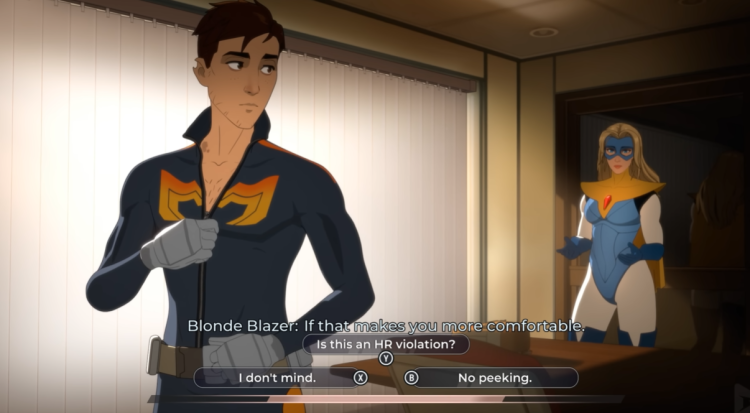
What follows is a layered rhythm of conversations, small decisions, and reactive interruptions. Dispatch splits its time between animated story sequences and management work at the SDC office. In the former, you steer Robert through scenes that sharpen his relationships with the Z-Team—an ensemble of half-reformed villains with uneven loyalties and even shakier self-control. In the latter, you assign those same heroes to jobs across the city, using a stat grid that echoes the simplicity of early RPG companions while placing more emphasis on intuition and personality than raw numbers.
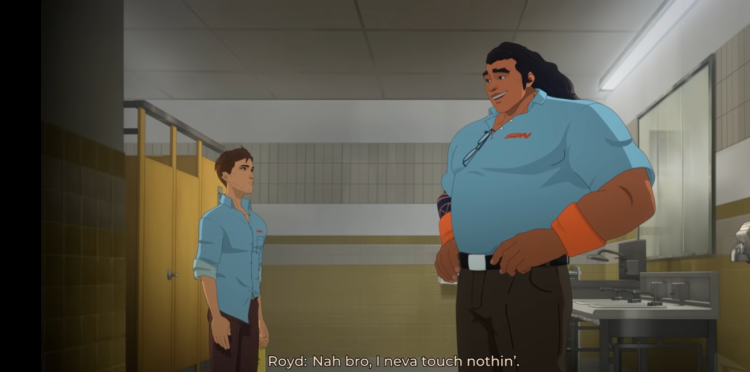
The Z-Team frames much of the game’s emotional work. They bicker, resist orders, and undercut authority, sometimes out of immaturity, sometimes out of fear. Their history as villains isn’t treated as a joke, but Dispatch rarely reduces them to straightforward archetypes. Moments of sincerity push through their rough edges, often catching Robert—and the player—off guard. One scene in particular, a quiet pause outside a bar where the hulking Golem waits alone, turns a walking punchline into someone recognisable, tired, and oddly vulnerable. These flickers of humanity help explain why players may find themselves defending characters who, on paper, have given little reason to be trusted.
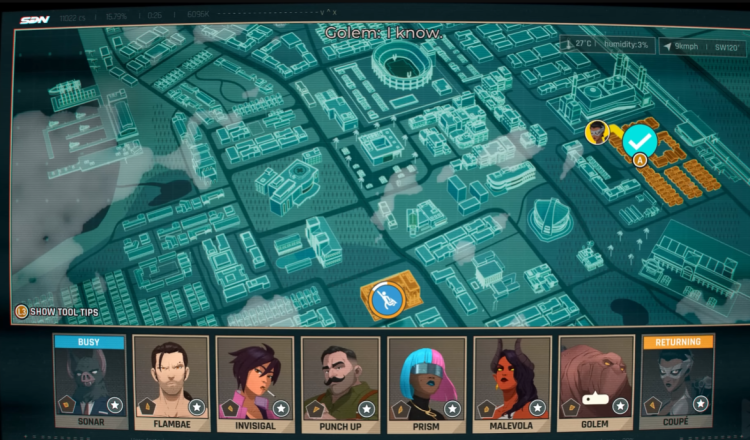
The interplay between story and system is clearest during dispatch shifts. Jobs appear across a city map with countdown timers, forcing quick decisions about which hero to send and when to risk pairing multiple members together. The wrong match leads to injuries or shifts where someone becomes unavailable. A correct match yields experience and stat growth. Pressure builds not just from the timers but from the personalities. During one early shift, the Z-Team argues over who might be cut from the roster. Their panic bleeds directly into the minigame: they ignore orders, split off, or refuse assignments. The story writes the frustration; the gameplay makes you feel responsible for managing it.
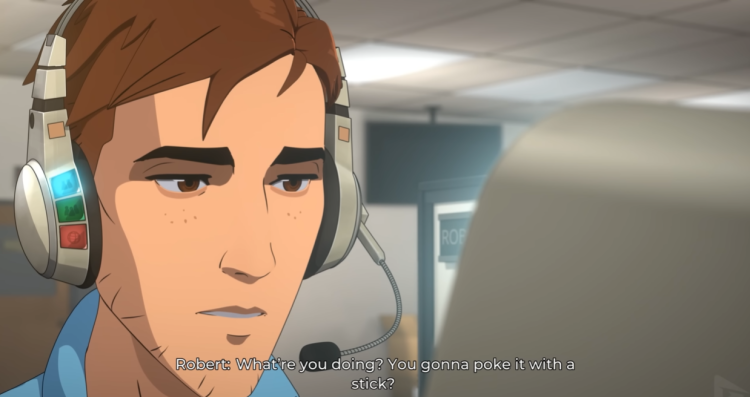
The structure works because it is measured rather than frantic. Dispatch doesn’t drown the player in branching paths, nor does it inflate decisions with stakes larger than the narrative can support. Most choices reshape tone, loyalty, and personal history rather than the overall plot. Yet the cumulative effect is strong: the ending Robert receives feels tied to the person you shaped him into, not a binary good-or-bad finale grafted onto the last scene.
Quick-time events make intermittent appearances, echoing the lineage of games such as The Wolf Among Us and Life Is Strange. They remain functional rather than transformative. Their role is to keep players engaged during cinematic sequences without overshadowing the dialogue work that defines the episodes. They neither elevate nor harm the experience, sitting comfortably within the genre’s standard toolkit.
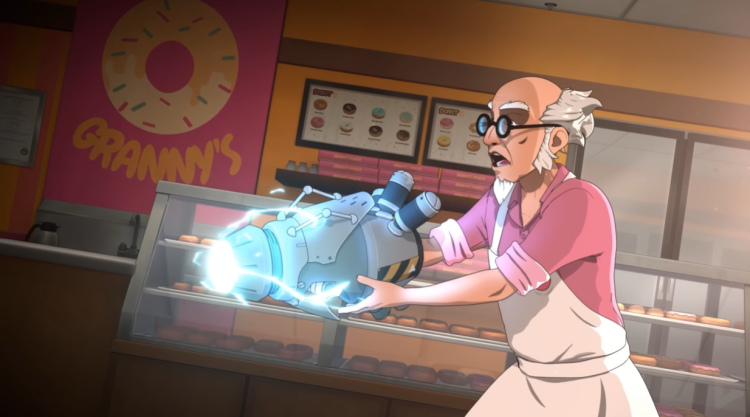
Where Dispatch strain is in its secondary hacking minigame, the design—a rotating 3D object guided through a neon maze while dodging moving antivirus orbs—introduces variety but doesn’t match the clarity or urgency of the dispatch sequences. Difficulty scales as the story progresses, yet the payoff rarely justifies the mental load required. These puzzles feel like nods to traditional game structure rather than organic extensions of the narrative, and their extended late-story sections risk slowing the pacing during otherwise sharp episodes.
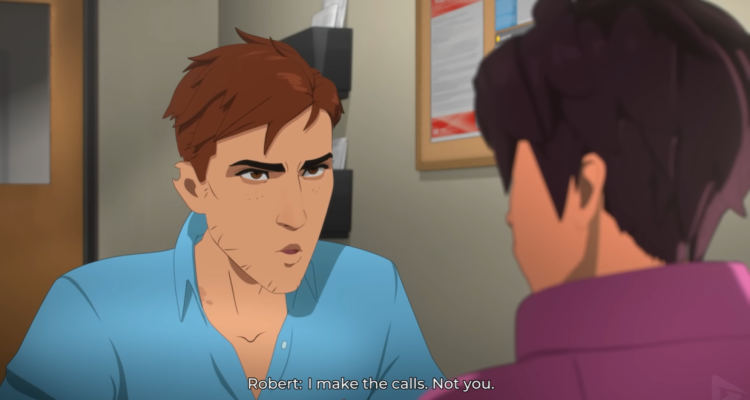
Writing and performance carry much of the game’s energy, giving scenes enough texture to make the world feel lived in rather than caricatured. The script isn’t afraid to blend dry humour with abrupt sincerity, and the interplay between those registers gives Dispatch a distinct cadence. Laura Bailey’s Invisigal leans into that unpredictability, shifting between antagonistic bravado and disarming honesty. Erin Yvette’s Blonde Blazer manages a neat pivot between heroic formality and awkward banter, reinforcing the idea that even polished heroes have private, faltering moments. Aaron Paul anchors the cast with a grounded portrayal of Robert, playing him less as a fallen titan and more as a working professional who suddenly discovers how much of his identity was tied to the machinery he no longer controls.
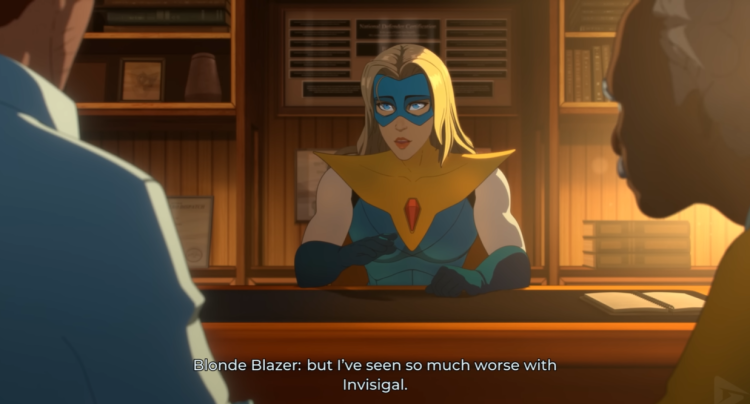
This balance of voice acting, animated expression, and reactive systems forms Dispatch’s clearest strength. It reads like a project built by people who understand the appeal of character-driven storytelling but also recognise the need to give players something tactile to do with the information they learn. The dispatch system, with its timers and stat matches, turns personality quirks into mechanical considerations. The story then folds those decisions back into character reactions, reinforcing the sense that choices matter because they alter relationships rather than global outcomes.
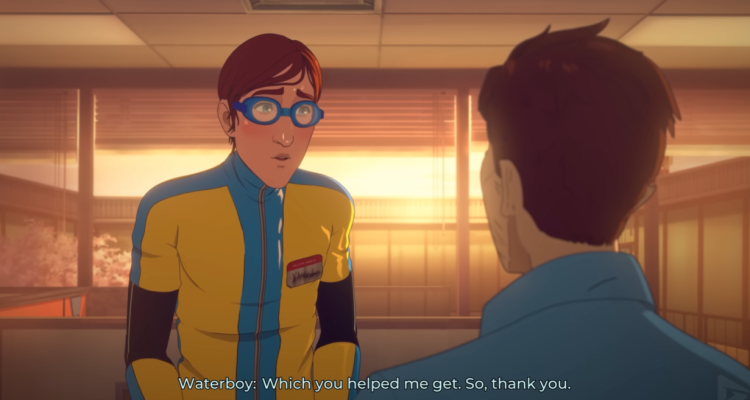
The game’s eight-hour structure embraces television pacing. Episodes end on sharp hooks or emotional breaks, but the connective tissue between them remains smooth. The design never forces players to replay episodes to see alternate versions, though the narrative invites curiosity. Thwaites notes that she wanted to revisit choices after credits rolled, and that sentiment speaks less to branching complexity than to the game’s ability to make its characters feel flexible enough to warrant another pass.
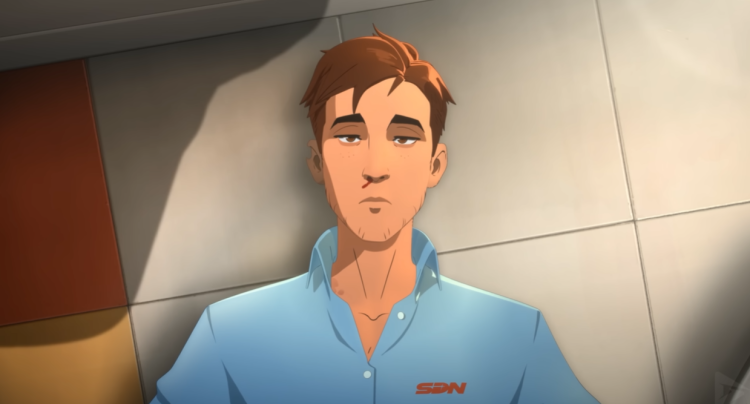
Dispatch is not a reinvention of the narrative-adventure format, but it shows how much room still exists within it when developers trust pacing, performances, and character work over spectacle. Its world—a collision of superhumans, insurance contracts, and bureaucratic exhaustion—doesn’t reach for satire; it lets its consequences land through small, personal stakes rather than sweeping commentary.
AdHoc’s approach results in a story that feels idiosyncratic yet coherent, deeply character-driven yet structured enough to avoid indulgence. It is playful in some moments, heavy in others, and grounded by an understated emotional throughline about identity, responsibility, and the unwanted distance between who you were and who you must become.
Read also Aaron Paul’s recent interview about returning to the role of Mecha Man, which expands on how he approached Robert’s arc, why he connected with the character’s uncertainty, and what it meant to voice a hero whose power comes not from strength but from learning to lead without a suit.

3 free cases and a 5% bonus added to all cash deposits.
5 Free Cases, Daily FREE & Welcome Bonuses up to 35%

a free Gift Case


EGAMERSW - get 11% Deposit Bonus + Bonus Wheel free spin
EXTRA 10% DEPOSIT BONUS + free 2 spins
3 Free Cases + 100% up to 100 Coins on First Deposit
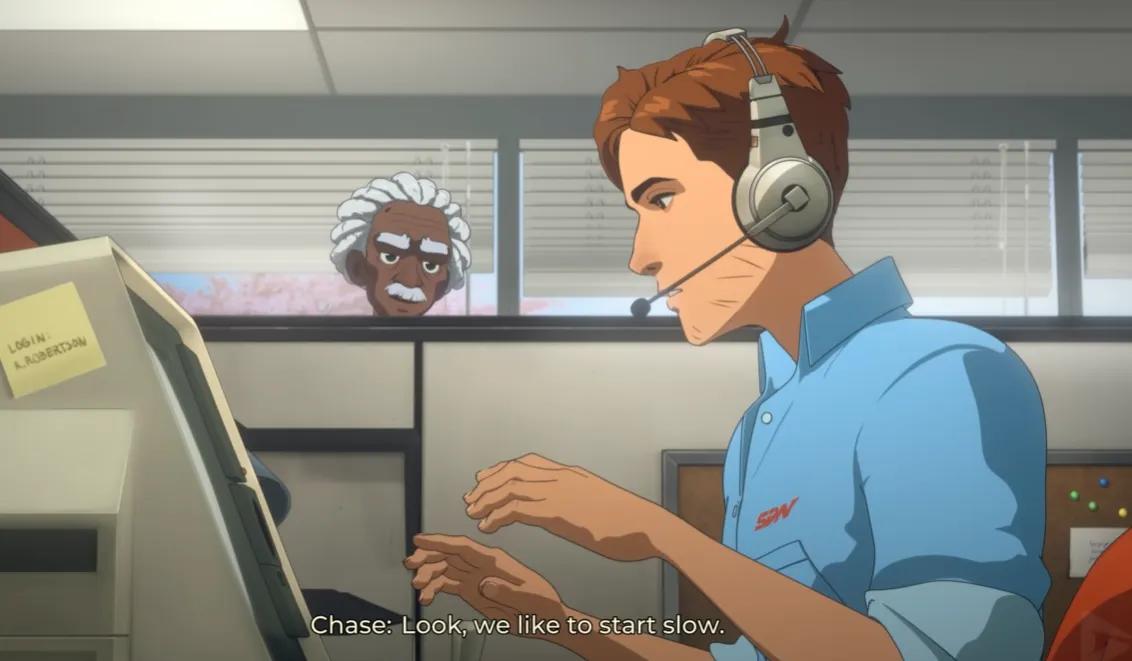

Comments